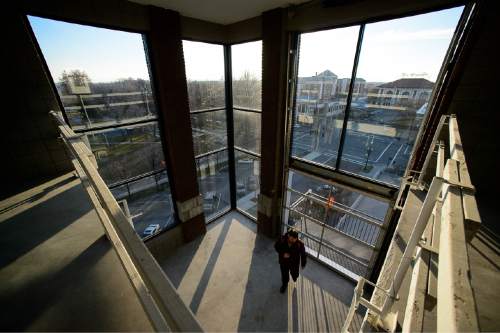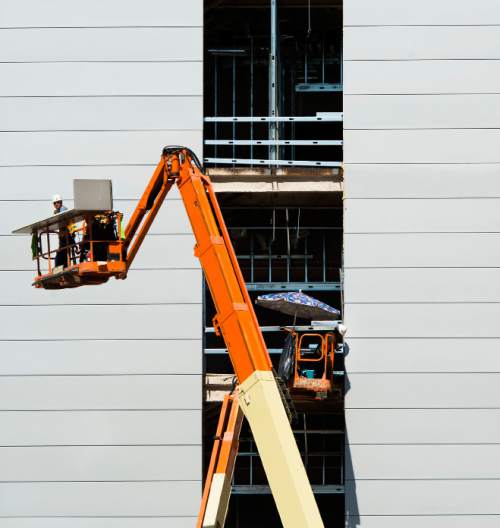This is an archived article that was published on sltrib.com in 2015, and information in the article may be outdated. It is provided only for personal research purposes and may not be reprinted.
Salt Lake City will suspend impact fees on new development for 12 months in an effort to grapple with a reserve of funds built up from past collections and improve the way fees are assessed, collected and spent.
The moratorium, proposed by Mayor Ralph Becker last month, yielded a 4-3 initial vote late Tuesday in a City Council work session. Formal, final approval is expected Tuesday.
"One of the problems that I think we've seen with the way that impact fees have been collected is that we collect them and then they sit," said Councilman Charlie Luke. "We've seen this happen over and over."
He said many times council members don't understand how to spend the collected fees, and that even when good ideas are presented, the process is so complicated that nothing gets done.
The current policy "is not working," Luke said, adding a yearlong break would allow policymakers a chance to regroup and clearly define a new and improved policy.
He hopes that in a year, members of the council will be able to "know what the heck we're talking about."
Hailing the move is the Downtown Alliance.
"Right now the system just isn't fair," said organization spokesman Nick Como, adding that although nearly a quarter of impact fees come from downtown areas, they aren't distributed to projects in the same region.
He hopes that as leaders "pump the breaks" and assess how to spend impact fees, they can "level the playing field" for businesses and developers who are charged the same rate regardless of how much they build.
The moratorium demonstrates "incredible" collaboration between city officials and the private sector, said Como.
Councilman James Rogers also spoke in favor of the moratorium, saying there's already "plenty of funding" for projects.
"This is a great time for us to stop, take a deep breath, assess where we're at and how we can move forward with it," he said.
Councilwoman Erin Mendenhall disagreed, saying that while she recognizes the need to address the problem of unused funds, halting the collection of impact fees won't stop growth and the demand for services that comes with it.
"My reservations are that this isn't a moratorium that stops the thing that we're trying to address," Mendenhall said. "It just seems like such a shame to me that we won't be equipping ourselves with the financial ability to address the growth that happens in that 12-month period."
Impact fees are supposed to help the city keep up with the extra costs associated with growth, paying for such things as parks and open space, roads and public safety. Opponents of a moratorium see the alternative of this revenue source piling burden on existing taxpayers or forcing a cutback in services. Councilman Kyle LaMalfa wasn't convinced a moratorium was a good idea.
"I don't believe that we've got so much impact fees that we can't spend them," LaMalfa said.
Councilwoman Lisa Adams raised questions about what exactly this halt would mean financially for developers.
Jill Remington Love, community and economic development director, explained that once the moratorium goes into effect, the city will immediately stop requiring developers to pay the fees.
"Those individuals or developers who do submit building permits and get their permits during the suspension period, essentially their fees are waived during that time," Love said. "The city will not be going back to them later to collect those fees."
Although "it may feel unfair," she said, the administration has been "speaking with members of the community, letting them know that they can wait, there is a possibility of a suspension."
She said the city "has the right to put in place suspension as of a certain date and to stop it as of a certain date."
People can always sue, she said, but the validity of their claim would be questionable.
The vote at the end of the discussion showed Adams, Stan Penfold, Rogers and Luke in favor of the moratorium and Mendenhall, LaMalfa and Chairman Luke Garrott against it.





